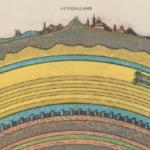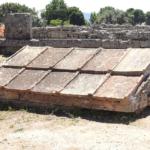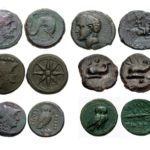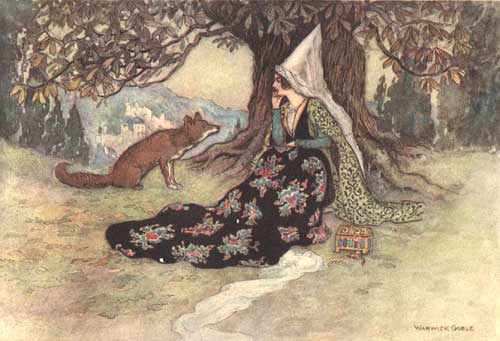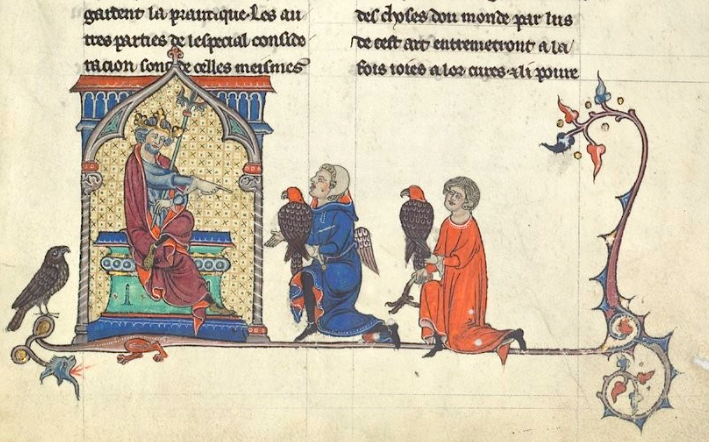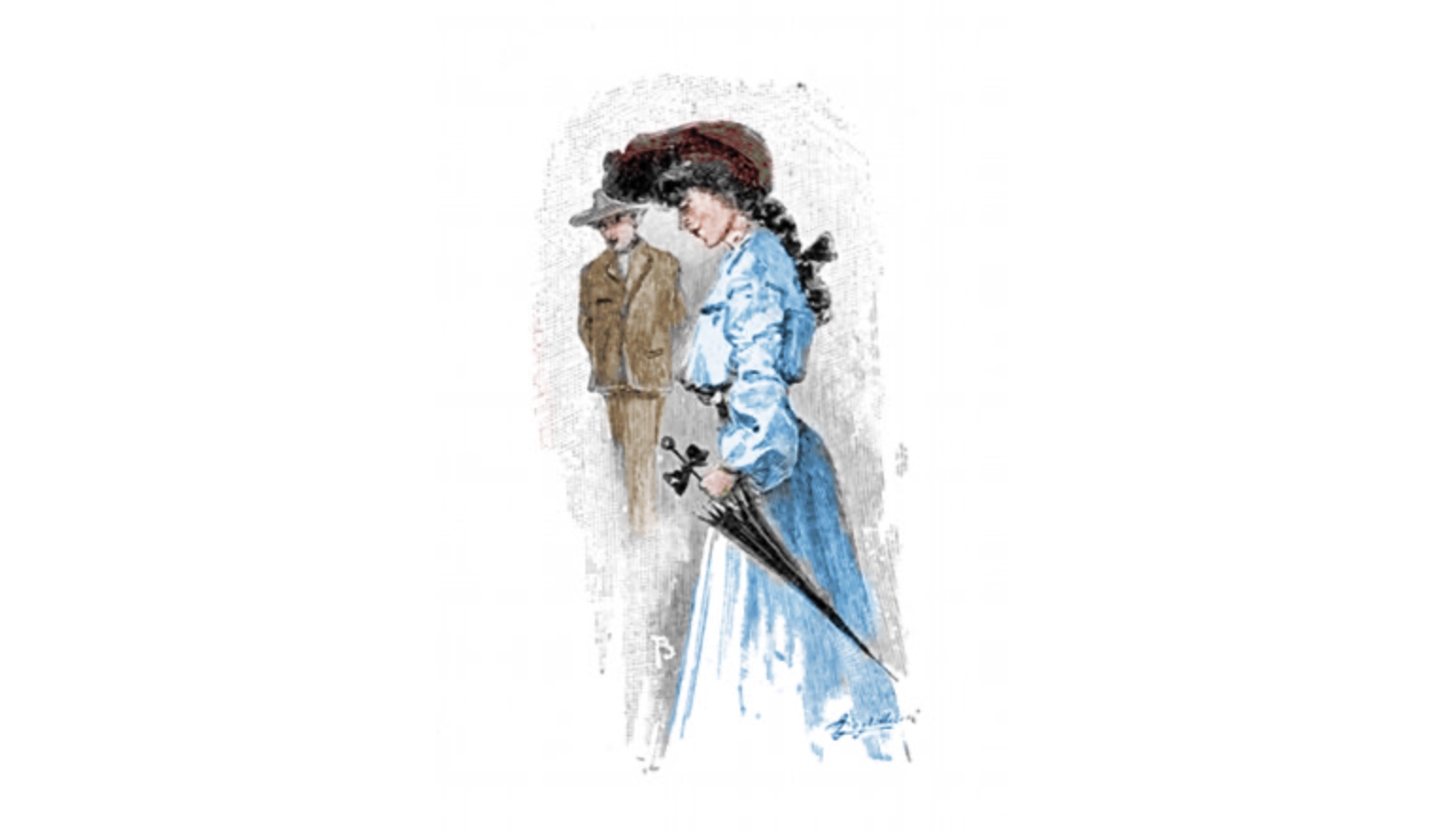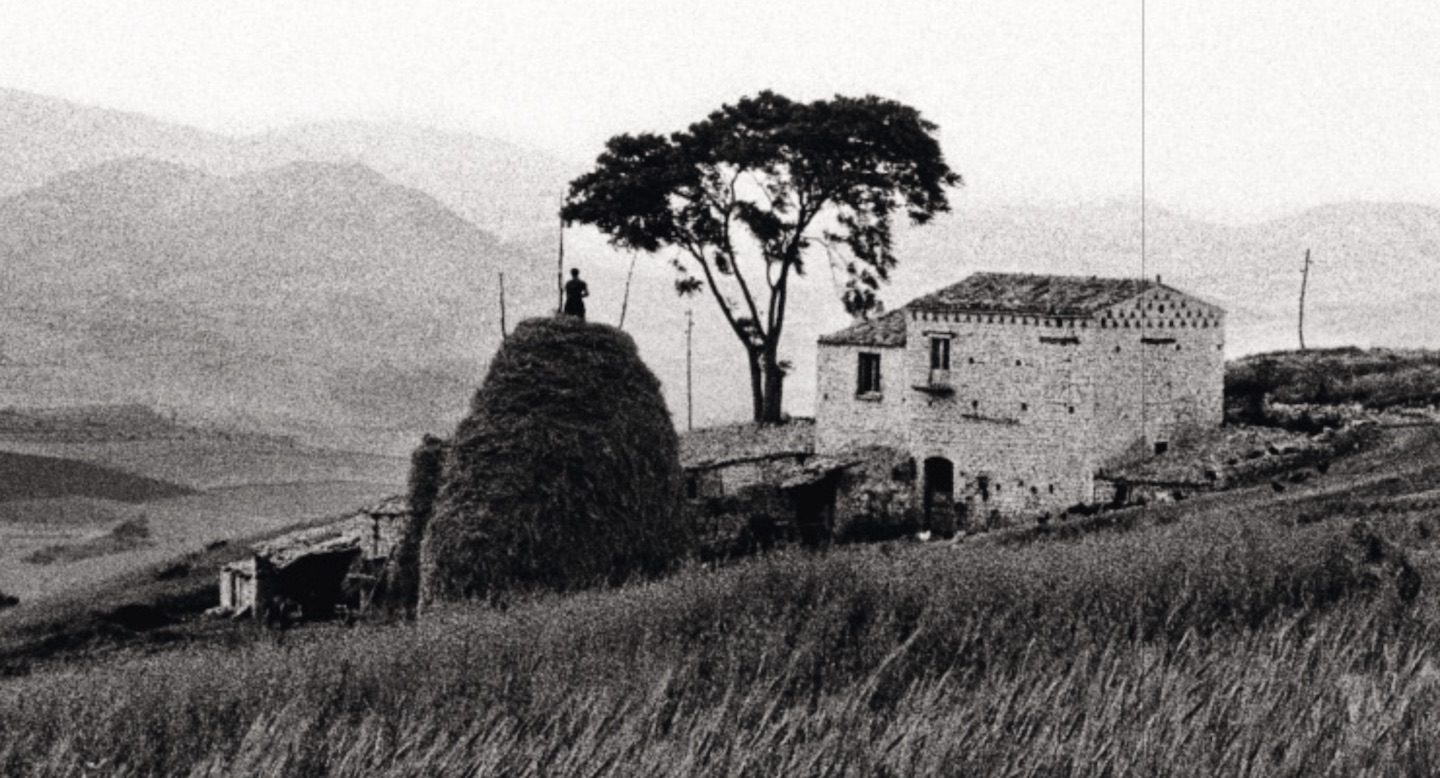
Lacedonia – Frank Cancian’s Pictures of a Disappearing World
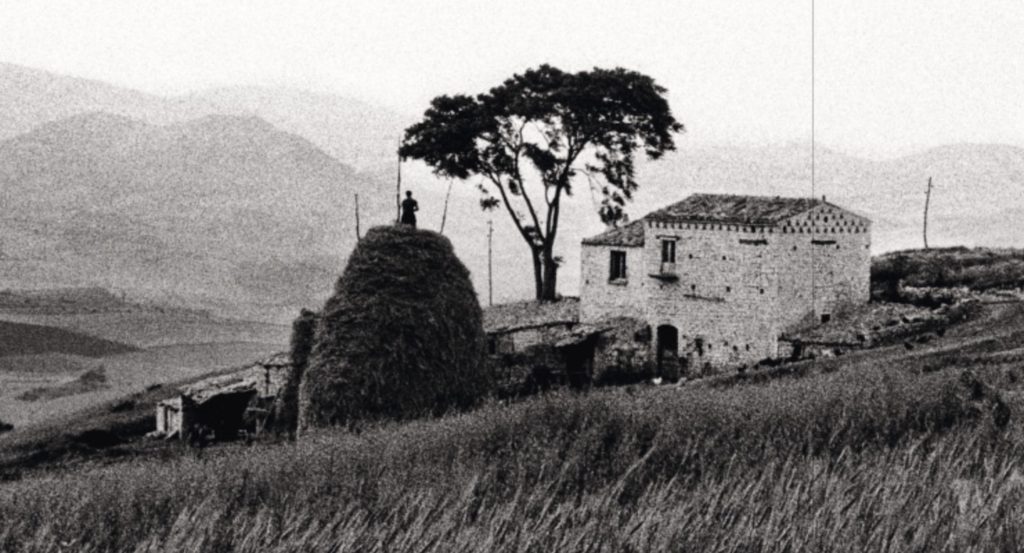
In 1957, it must have been a trip of a lifetime. Frank Cancian was going to Italy. An American student, child of Italian immigrants, he had won a Fullbright scholarship. The project would combine his love of photography and his studies in anthropology. He would use his camera to document the life of Lacedonia, a town in the hills of Avellino.
To reach Lacedonia you have to climb into the Apennines to the east of Naples. In ancient times this had been the land of the Samnites, Rome’s bitter enemies, who had long resisted conquest. Later it became the border lands of southern Lombard duchies before the Normans placed their stamp on this region of the world. For the centuries that followed Lacedonia and her surrounding towns were feudal possessions in the Kingdom of Naples, changing little as the seasons swung back and forth, the true markers of time in such a place.
In the epilogue of World War 2, when Frank arrived there, Italy was still prostrate. Yet Lacedonia’s reality was much older, and barely altered by events in the wider world. The pictures Frank took recorded a way of life that had endured centuries before the modern age changed everything. But the photos were packed away, left unused.
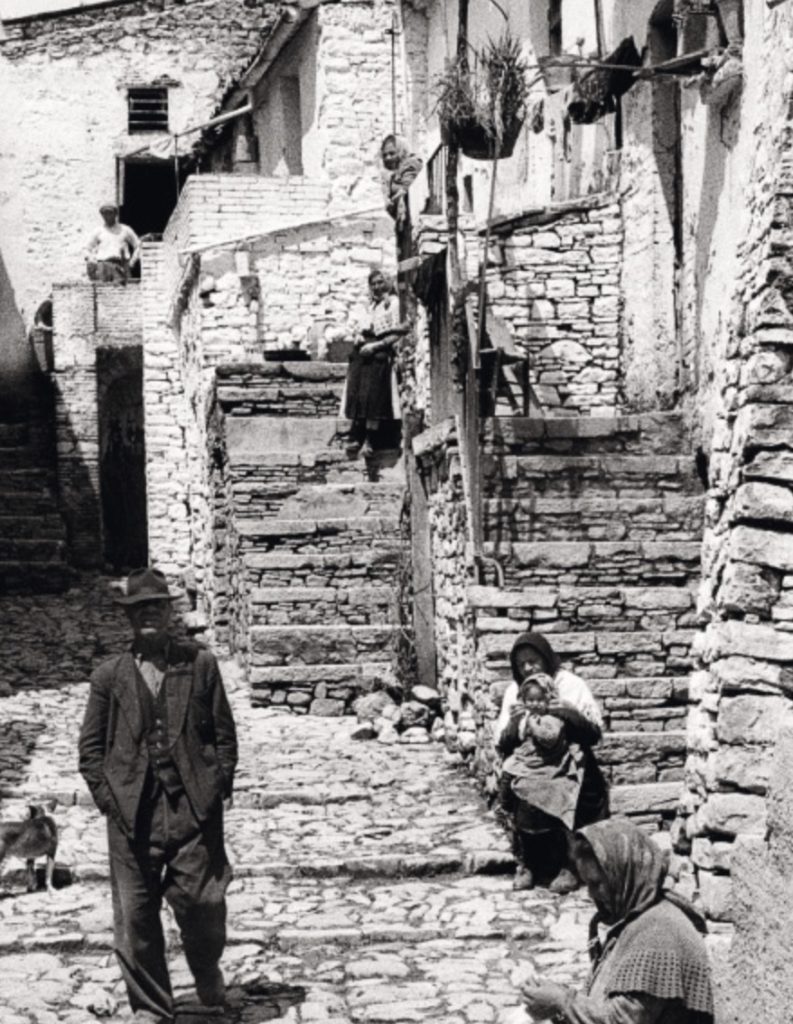
Yet, as Frank pursued his career for thirty years, becoming a professor of anthropology and studying the people of Central America, the photos of Lacedonia were still there, safe.
It was not until he retired that he published some of them on his website. Like dropping a pebble in a pond, Frank had set ripples spreading out across the world. For the story of the “American journalist” who came from far away, and who took a photo of a beautiful woman in Lacedonia, was not just Frank’s story. It was family lore and had been passed down to the next generation. Gerardo Ruggiero only half believed the story, but he set out to find her photo, and there it was. Her beautiful face smiled at him from the computer screen, although she was no more in this world.
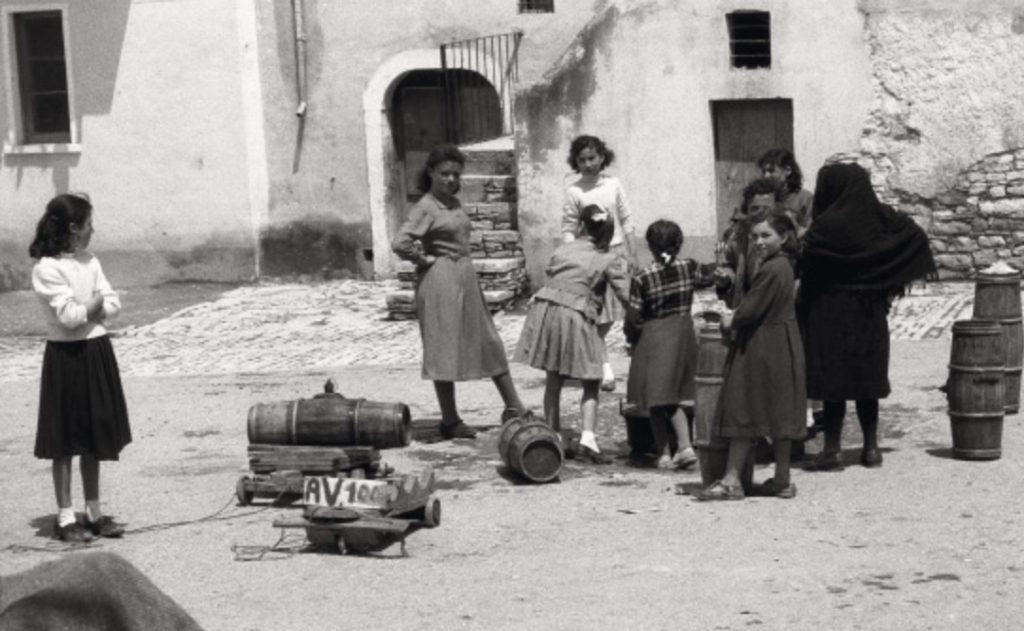
The ripples were not done, for what Frank saw as traveller from faraway, others had not seen, and had not recorded. His photos became the subject of an exhibition in Lacedonia itself in 2012. And from them was born a book: Lacedonia, An Italian Town, 1957. It constitutes a beautiful pictorial essay of the life of a people.
In this article we see a very few selections of over 100 pages of images found in Frank Cancian’s book. The pictorial essay traverses various dimensions of the life of Lacedonia. We see young men in their finery, young couples joined in marriage, faded posters of Gregory Peck and Audrey Hepburn in Roman Holiday, sacred processions, local gentry, and communist graffiti.
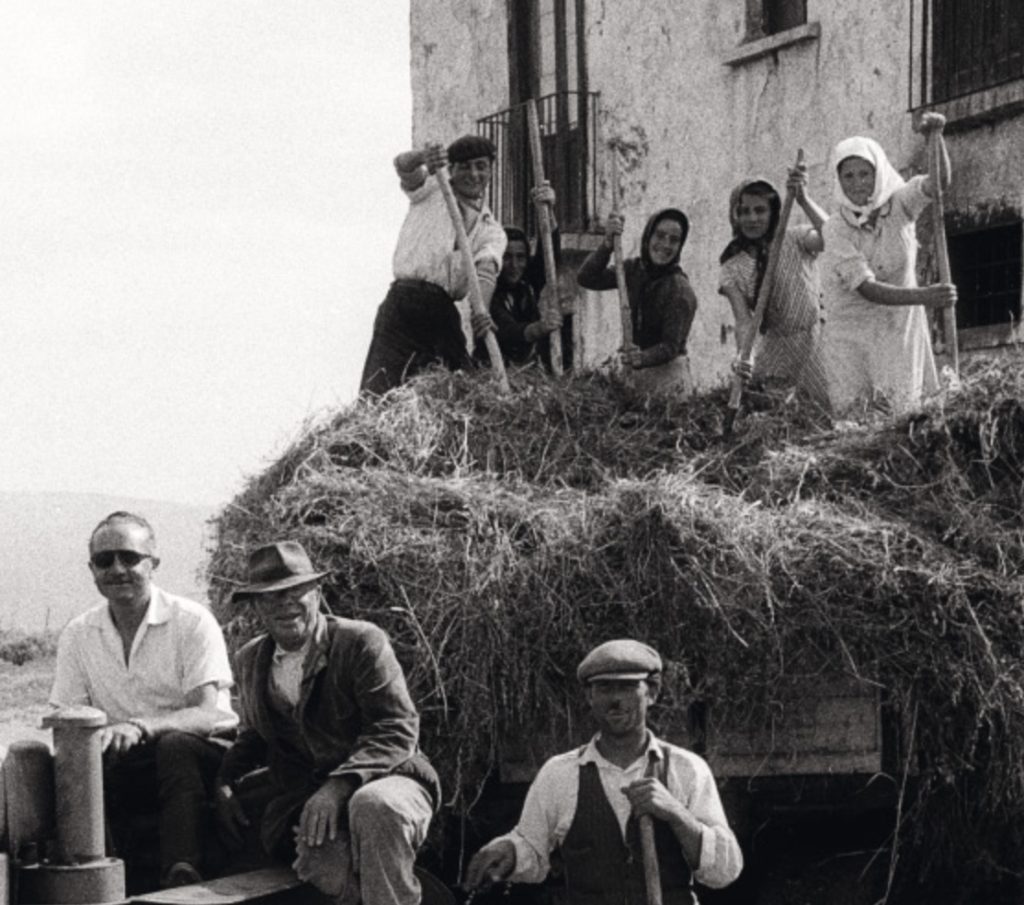
But the modern world sits lightly here. Ancient haystacks rise to a great height and flat stones, virtually unmortared piled one on another, rise in a timeless streetscape. Women work along side men in the fields, modernity’s attempts to confine them to the home, having here, thus far, failed.
The struggles of Lacedonia’s contadini are seen in a bleak field worked by husband and wife as winter begins to release its grip.
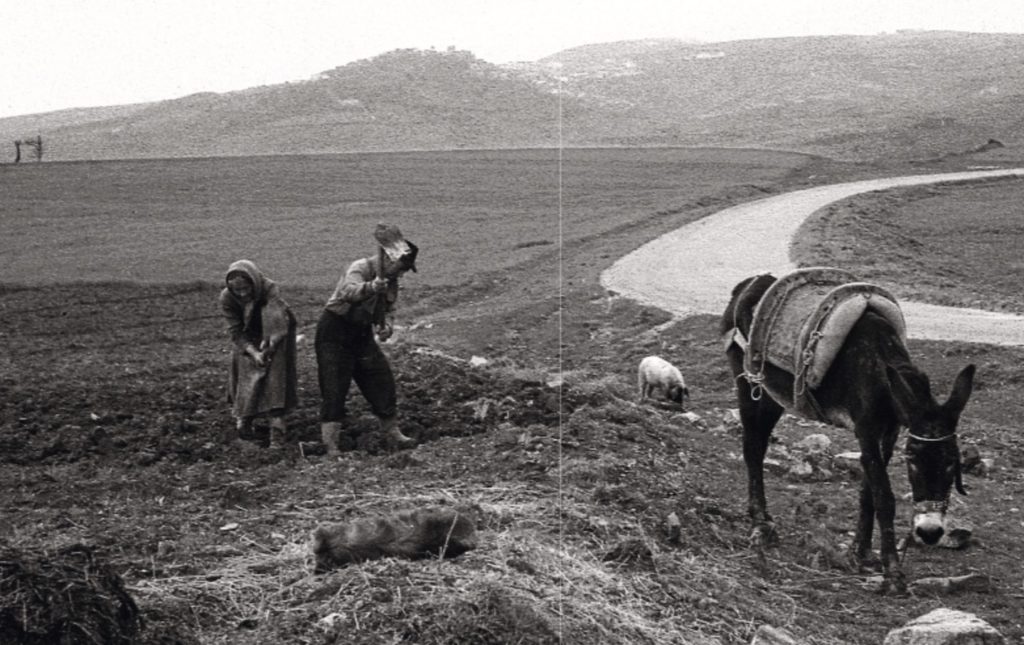
Faces stare out at us. Long before the era of selfies, many of the faces are not composed, we see them as they are: joy or sadness, a querulous look of disbelief, a focussed look of concentration, engaged in intense conversation, a curiosity for this young man from far away. A rugged dignity is in the faces of those who have many years behind them. Many hint at the suffering of a difficult life. We see the people of Lacedonia at work, at play as young school children, quite miserable at the new reality that locks them away from the natural world around them.
Frank Cancian’s book is remarkable. It is a record of past life that few towns possess. The full work can be accessed online at Frank Cancian’s webpage.
Images
All images are copyright of Frank Cancian, reproduced here with his kind permission.

